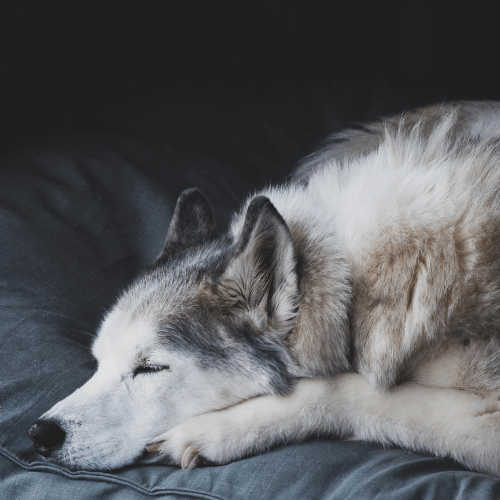Senior Pet Care
Sometimes changes in our older pets are subtle or slow in their onset, making them hard to recognize immediately. Trust in our care to identify potential health issues right away.

My Geriatric Pet: Senior Pet Care
If your pet exhibits any of the following, please discuss it with your veterinarian. If you get home and would like to discuss any of these topics in more detail, please don’t hesitate to call us. Our goal is to keep your pet in optimum health from birth through their golden years.
- Changes in mobility
- Trouble getting up, going up stairs, or jumping into cars
- Less physical activity
- Unintentional weight gain or loss
Changes to Watch for in Senior Pets
Difficulty chewing
- Does it seem hard for your pet to chew their food?
- Do they drool excessively?
Vision
- Does your pet bump into furniture?
- Are their eyes cloudy?
Urinary incontinence
- Is your pet’s bedding wet in the morning?
- Is your pet having accidents in the house?
Changes in appetite
- Increased or decreased appetite
- Does your pet appear to drink more?
Hearing
- Do you have to speak louder for your pet to respond?
- Is it difficult to wake them from slumber?
- Do they still greet you at the door/hear you come home?
Skin moles or warts
- Do they seem to be painful for your pet?
- Have they changed in appearance?
Behavioral Changes
- Does your pet seem anxious?
- Does your pet not seem to recognize you at times?
- Are they reluctant to use stairs?
- Do they stare into space for extended periods?
- Do they become disoriented, such as by getting suck behind doors or chairs?
Conneaut Lake Veterinary Hospital believes it is important to routinely examine our senior patients every 6 months to prevent any illnesses from arising or progressing.
